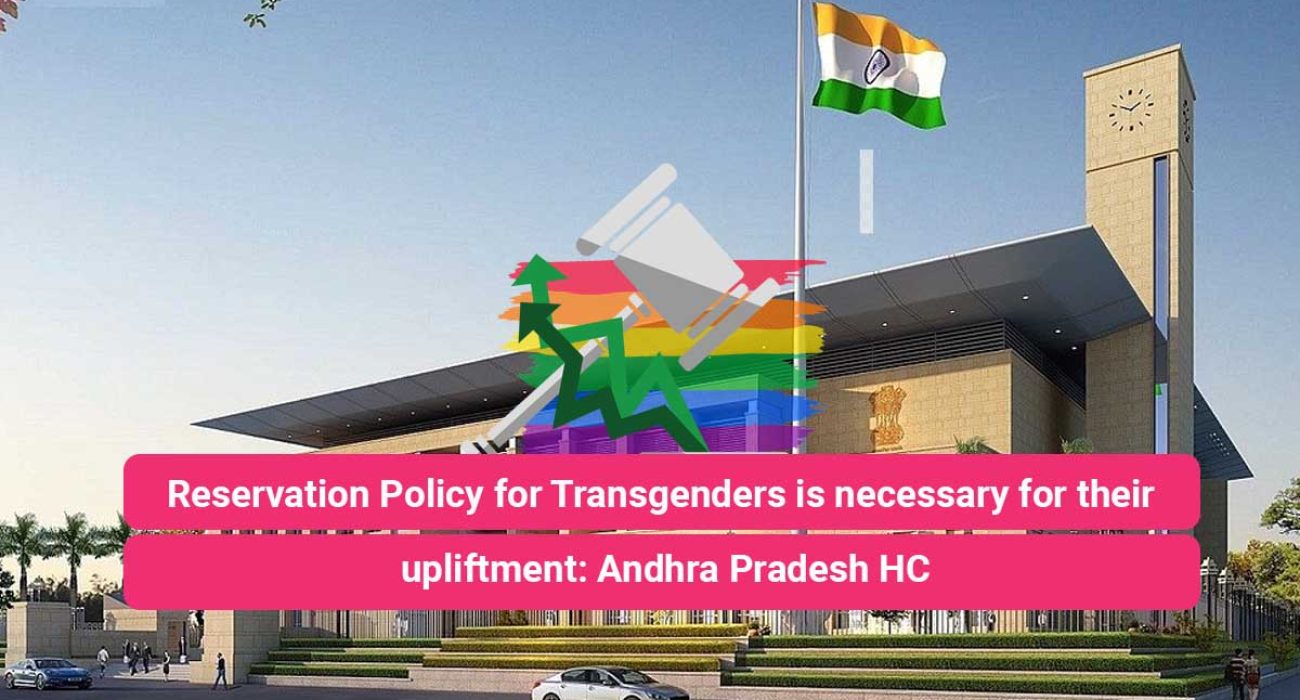

The Andhra Pradesh High Court gave a milestone judgment concerning the reservation policy for people belonging to the transgender community and dismissing the government notification for the recruitment in the Police Department as Stipendiary Cadet, Trainee Sub Inspector of the Police Department.
The Petitioner, in this case, was Matam Gangabhavani, who is transgender, challenged the said government notification to be infringing the Right to equality, freedom of expression, Right to life, and furthering discriminative policy against the transpersons. The Petitioner also claimed that the said notification was against the judgment of the Apex Court in NALSA vs Union of India, which laid that there should be a reservation policy for the social welfare of transpersons. The Petitioner was assigned male at birth, underwent gender affirming surgery in 2003 and later on after the NALSA judgment, changed the gender identity from male to transgender in several government documents. The said government notice for Police Recruitment Force only provided for “male” and “female” genders which pressurized the Petitioner to register for the post as “female”. However, the Petitioner, later on, wished to claim the benefits of reservation based on the NALSA judgment and Transgender Persons (Protection of Rights) Act, 2019, but as the notification did not provide for an option to choose ‘transgender’, the said benefits could not be claimed.
Nevertheless, the Central Administrative Tribunal (CAT) dismissed the petition stating that the notification only aims to fill the vacancies of males and females. Hence, the benefit of transgender reservation cannot be claimed in gender-specific requirements.
However, the Andhra Pradesh High Court gave a wide interpretation to this. The High Court emphasized on the notion of ‘proportional equality’ which means that it is the responsibility of the State to take some affirmative action’s to uplift these vulnerable sections and bring them at par with the other.
Justice M.Satyanarayana Murthy remarked “More so, their number is minimum in the State, but they are not being provided proportional equality in the employment and are neglected by the State without providing even a column in the application form for gender identity of transgender, thereby, it amounts to a denial of an opportunity in employment treating them unequal with men and women.”
Even though the notification was not inclusive of the transgender, the High Court held that it cannot declare the said notification to be arbitrary as the Hon’ble Supreme Court in NALSA judgment suggested the idea of reservation for transpersons but there has been no initiative until now with regards to this by the legislature.
The Bench of the High Court also stressed on the historical and mythological presence of transpersons in epics, however their acceptance still a question in our society. It stated that,
“Though, transgender is a person recognized in the epics, the lawmakers, including the Constitutional framers did not take note of their existence and treatment of transgenders on par with others.”
Additionally, even the Transgender Persons (Protection of Rights) Act, 2019 and Transgender Persons (Protection of Rights) Rules, 2020 does not provide for reservation in public employment or any government establishments to transgender persons. Thus, the Bench held that the Court could not issue any direction to provide reservation to the petitioner based on sex or social status.
– Written by Vaishali Jain & Hamda Arfeen
IAW resources
Browse our help directory